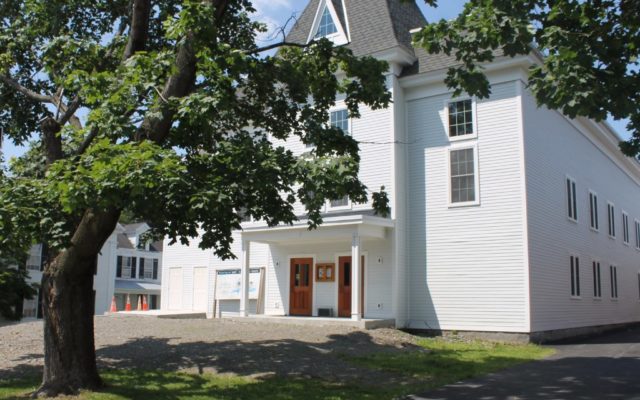
Common Threads — making real connections improves health
I am always energized in the spring. This year, as so often before, I am in awe of the many opportunities we have in our community to grow more inclusive, more engaged, more healthy. So I am writing today about opportunity.
Recently I have been considering what I believe to be a potential threat to our community and our personal and collective health-disconnection and loneliness. A wave of new research suggests social separation is bad for us. Individuals with less social connection have disrupted sleep patterns, altered immune systems, and higher levels of stress hormones. Loneliness can accelerate cognitive decline in older adults, and isolated individuals are twice as likely to die prematurely as those with more robust social interactions. But these effects are not limited to older people: socially isolated children have significantly poorer health 20 years later, even after controlling for other factors. All told, loneliness is as important a risk factor for early death as obesity and smoking. It is likely that the rise in substance use is related to increased perceived social isolation, as is the rapid increase in social violence and suicide. So, loneliness won’t just make you miserable — it will kill you.
Now many of you may say “disconnection? I am more connected than ever with my cell phone and computer!” Well, the research now shows that Facebook and social media do not truly represent connectedness. In fact, the great paradox of our time is that in our hyper-connected world we are drifting apart. The rise of social media use has resulted in increased feelings of loneliness, separation, inadequacy and depression, especially among people age 18-25. Since the 1980s, the percentage of American adults who say they’re lonely has doubled from 20 percent to 40 percent.
So why do I feel hopeful? When I first started work on The Commons-Maine Highlands Senior Center project, I focused on the problem of loneliness related to older people who live alone, don’t drive, and have changes in health. I realize now, however, that loneliness can affect people of all ages. But I see opportunities everywhere in our community for connection, real connections. From the historical and strong church families, to the multiple YMCA programs, exercise programs, discussion groups and storytelling project at the local library, clubs, and events at The Commons, The Center Theatre or the local granges, there are a multitude of ways in our community for people of all interests to engage with other people directly-often without any cost. It is essential for our health for each of us to make the effort to tear ourselves from our screens, the “false god of connection” and to make time for real, face-to-face human interaction.
Come to The Commons to learn a new skill like quilting or creative writing, to dance or just listen to the music and watch the joy of dancing families at one of the monthly contradances. Attend a weekly luncheon and play cribbage, or practice yoga or tai chi in a small group. Share your seeds or your garden plans with other gardeners. Sign up for a discussion group at Thompson Free Library. Join an exercise group at the Y or Community Fitness in Guilford. Play pickle ball. Whatever you do, it will be good medicine.